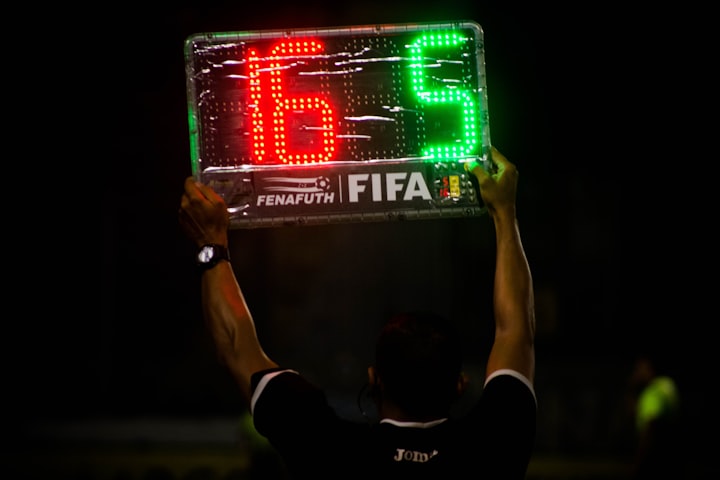Referees - Football's Pantomime Villains
Referees are easy targets, but are often their own worst enemies.

It's a cold Tuesday night in Leeds and visitors Liverpool are being held by the home team. Suddenly, the ball ricochets off Trent Alexander-Arnold and Cody Gakpo is able to slot home the opening goal amid protests from the Leeds defence. Despite a VAR check for handball, the goal is allowed to stand and is the first of 6 for a clinical Liverpool side.
The goal is controversial to say the least. Replays clearly show the ball hit Alexander-Arnold's arm, with some of the opinion that he even moves his arm into the ball's path, and yet the referee isn't advised to have a look at the monitor. How can almost everyone watching hold the opposite view of those in control of the match?
Decisions like this are the bane of modern English football and are certainly not in short supply. Just the night before, Harry Maguire escaped a penalty when the ball hit his outstretched arm. A couple of weeks ago, the PGMOL, the organisation responsible for Premier League referees, was forced to issue an apology to Brighton after several controversial decisions went against them, including a goal ruled out for handball.
When decisions such as these decisions were made on the field before VAR, there might have been some discontent among rival fans but referees had a certain amount of leeway. With the pace and pressure of the game, referees have seconds to make the right call, which they generally do more often than not. Now though, there's an extra team of officials watching every Premier League game, keeping their eye out for anything that may warrant a closer look. And yet, officials still seem to come to decisions that are widely considered incorrect, despite the number of angles and replays available, and the amount of time it takes.
The problem is that fans expected VAR to offer objectively correct decisions in a game that is so often incredibly subjective. "All we want is consistency", fans say, while referencing five different incidents reviewed by five different refereeing teams throughout a season. A Premier League referee makes an average of 240 decisions per game and the simple fact is that no two referees will view an incident in exactly the same light, a fact which was begrudgingly accepted before the introduction of VAR.
This is because the Laws of the Game are by their very nature subjective, as is the "clear and obvious" error standard that dictates when a VAR should get involved. Surely if the on-field decision is wrong, this is a clear and obvious error? However, those watching on have no idea what the refereeing team is saying to each other, and with the on-field decision being King a referee holds a significant amount of sway over what the VAR will get involved in - they may justify their decision that makes the VAR believe they have not made a clear enough error to get involved.
But this helps no-one. Technology has made referees lazy, shirking the big calls in the hope that those with a screen will make them for them. And when the VAR makes that decision but gets it wrong, it is the refereeing profession that bares the brunt of it. On-field referees need to start making the big calls assertively, and VAR needs to be overhauled to make intervening and correcting wrong decisions more black and white.
There also needs to be transparency in football. If fans could hear the key conversations between officials, at least we'd know what thought process they were following. At the minute, club tweets are bombarded by cries of corruption if something that seems obvious to fans goes against them. With an insight into the decision making process, fans are likely to be more understanding of decisions - even if they still disagree.
If you want refereeing decisions from your team's game analysed, click here.






Comments
There are no comments for this story
Be the first to respond and start the conversation.